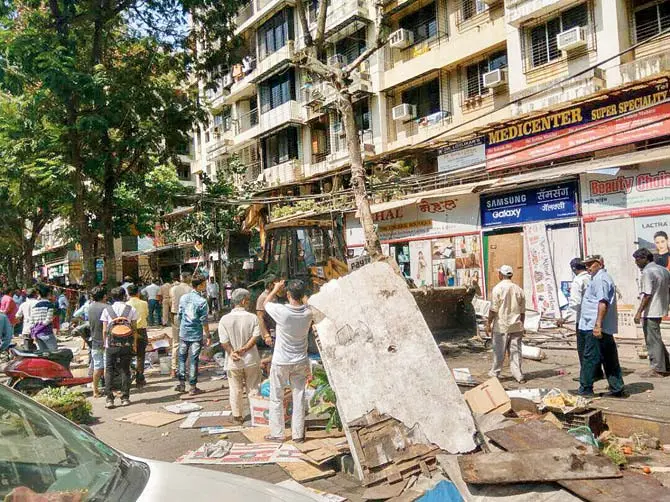As India approaches the upcoming general elections scheduled for April-May this year, a survey conducted by the World Economic Forum (WEF) has noted an alarming concern. The survey positions India at the forefront, confronting the most substantial global risk of misinformation and disinformation. This revelation brings to the forefront the pressing challenges entwined with the proliferation of false information within the country’s political landscape.
The World Economic Forum’s 2024 Global Risk Report further spotlights a formidable challenge looming over citisens worldwide: the pervasive menace of false information.
The World Economic Forum’s 2024 Global Risk Report further spotlights a formidable challenge looming over citizens worldwide: the pervasive menace of false information. Unprecedented in its scope, this annual survey conducted among experts underscores the critical role misinformation plays as a major threat, casting a shadow over democratic processes and public discourse on a global scale.
In light of this alarming report in the World Economic Forum’s survey, designating India as a top risk for global misinformation, begs a question: what does this suggest about the broader impact on democracies worldwide?
What did the study highlight?
Based on a ranking of 34 risks covering areas like the economy, environment, geopolitics, society, and technology, the chart breaks down how much of a problem misinformation and disinformation are expected to be for different countries in the next two years. This visual representation offers a glimpse into the multifaceted nature of the threats faced by nations. As the global community grapples with these evolving challenges, the chart serves as a roadmap, providing insights into the potential impact of misinformation on various facets of the analysed countries’ landscapes. And in light of ‘rapid technological change, economic uncertainty, a warming planet, and conflict,’ the ‘Global Risks Report 2024’, issued early this year, examined some of the ‘severe risks’ that the globe is poised to confront in the coming years.
The study also delves into the personal experiences of voters, unveiling that 65.2% of first-time voters have encountered fake news on popular social media platforms. This revelation raises poignant questions about the impact of misinformation on democratic processes, particularly as countries like India, Bangladesh, Indonesia, Mexico, Pakistan, the United Kingdom, and the United States gear up for significant electoral events over the next two years.
Moreover, the report draws attention to the potential consequences of misinformation on the legitimacy of newly elected governments.
Moreover, the report draws attention to the potential consequences of misinformation on the legitimacy of newly elected governments. ‘As close to three billion people are expected to head to the electoral polls across several economies – including Bangladesh, India, Indonesia, Mexico, Pakistan, the United Kingdom and the United States – over the next two years, the widespread use of misinformation and disinformation, and tools to disseminate it, may undermine the legitimacy of newly elected governments. Resulting unrest could range from violent protests and hate crimes to civil confrontation and terrorism,’ the report stated further.
India was marked as the first, what could be the reason?
India emerges as the country most susceptible to the risk of disinformation and misinformation, garnering the highest ranking among various potential threats. Misinformation and disinformation were the most often cited concerns by experts for the nation, ranking ahead of infectious diseases, illegal economic activities, inequality (income and wealth), and labour shortages. This underscores the pivotal role false information plays in shaping the risk landscape in India. With the nation preparing for its upcoming general election, slated for April to May 2024, in a country boasting a population of approximately 1.4 billion people, the prevalence of misinformation becomes a critical factor influencing the socio-political dynamics.
Misinformation in India proliferates through various social media platforms, posing a significant challenge to the dissemination of accurate information. The country’s extensive use of platforms like Facebook, Twitter, WhatsApp, and others has created a fertile ground for the rapid spread of false or misleading content. This phenomenon is particularly pronounced during sensitive periods such as elections when the impact of misinformation on public opinion and political discourse is substantial.
The circulation of misinformation on social media platforms in India often involves false narratives, manipulated images, and misleading information campaigns. India’s 2019 election witnessed a surge in the prevalence of fake news, with reports indicating that political parties strategically utilised platforms like WhatsApp and Facebook to disseminate provocative messages among their supporters. This strategic use of social media raised concerns about the potential for online anger to escalate into real-world violence, as reported by Vice. The weaponisation of these platforms underscored the significant impact misinformation can have on the democratic process and societal harmony.
More recently, during the COVID-19 pandemic, India faced another wave of misinformation, this time primarily through WhatsApp. False narratives and misleading information related to the virus, preventive measures, and vaccination campaigns circulated widely, posing challenges to public health communication efforts. The dual challenges of political misinformation and health-related false information highlight the need for comprehensive strategies to address the multifaceted nature of misinformation in India.
Addressing this challenge requires a multifaceted approach, including digital literacy initiatives, fact-checking mechanisms, and responsible social media usage.
Addressing this challenge requires a multifaceted approach, including digital literacy initiatives, fact-checking mechanisms, and responsible social media usage. As the country grapples with this evolving issue, efforts are underway to mitigate the impact of misinformation and promote a more informed and resilient society.
False information and its influence on the society
According to the report, misinformation and disinformation are characterised as enduring false information, whether intentional or unintentional, extensively disseminated through media networks. This dissemination substantially influences public opinion, fostering a heightened sense of scepticism towards facts and authority. The encompassing definition involves various forms such as false, imposter, manipulated, and fabricated content, emphasising the diverse tactics employed in spreading deceptive information.
The report highlighted that there will be an increasing trend of personalising disinformation to its recipients and targeting specific groups, including minority communities. Additionally, the dissemination of such misinformation will occur through more opaque messaging platforms like WhatsApp or WeChat which is concerning.
In a global survey gauging the top risks confronting the world, an overwhelming two-thirds of respondents, totalling 66%, identified extreme weather as the foremost concern. Following closely, AI-generated misinformation and disinformation garnered significant attention with 53% of the respondents expressing apprehension. The third-ranking risk, societal and/or political polarisation, drew concerns from 46% of those surveyed. This ranking highlights the widespread recognition of environmental challenges and the growing influence of artificial intelligence on information integrity and societal cohesion.
Additionally, the report outlined several other pressing risks for the year 2024. A ‘cost-of-living crisis’ was identified by 42% of respondents, underscoring economic challenges affecting individuals. Cyber attacks, acknowledged by 39% of participants, reflect the persistent threat to digital infrastructure. Furthermore, concerns about an economic downturn and disrupted supply chains for critical goods and resources were also flagged, emphasising the multifaceted nature of risks facing the world in the coming year.
‘Beyond elections, perceptions of reality are likely to also become more polarised, infiltrating the public discourse on issues ranging from public health to social justice. However, as truth is undermined, the risk of domestic propaganda and censorship will also rise in turn. In response to mis- and disinformation, governments could be increasingly empowered to control information based on what they determine to be “true”’, the report stated.

As the analysts at the World Economic Forum (WEF) concluded this stating: ‘The presence of misinformation and disinformation in these electoral processes could seriously destabilize the real and perceived legitimacy of newly elected governments, risking political unrest, violence, and terrorism, and a longer-term erosion of democratic processes.’ This statement emphasises the substantial influence that misinformation may exert on the fundamental aspects of democratic governance. It goes beyond immediate repercussions, highlighting the potential for enduring implications on political stability and the adherence to democratic norms.
In conclusion, the revelation of India being ranked at the forefront in the Global Risks Report 2024 for the risk of misinformation underlines the urgent need for proactive measures. As the nation approaches crucial elections, addressing the challenges posed by misinformation becomes paramount to safeguarding the democratic process, undoubtedly.
The report not only places India in the spotlight but also underscores the global significance of combating misinformation, emphasising the importance of fostering digital literacy, robust fact-checking mechanisms, and responsible information dissemination. In an era where information shapes public opinion, the recognition of India as a high-risk zone necessitates concerted efforts to ensure the integrity of information and fortify the foundations of a well-informed and resilient society.







